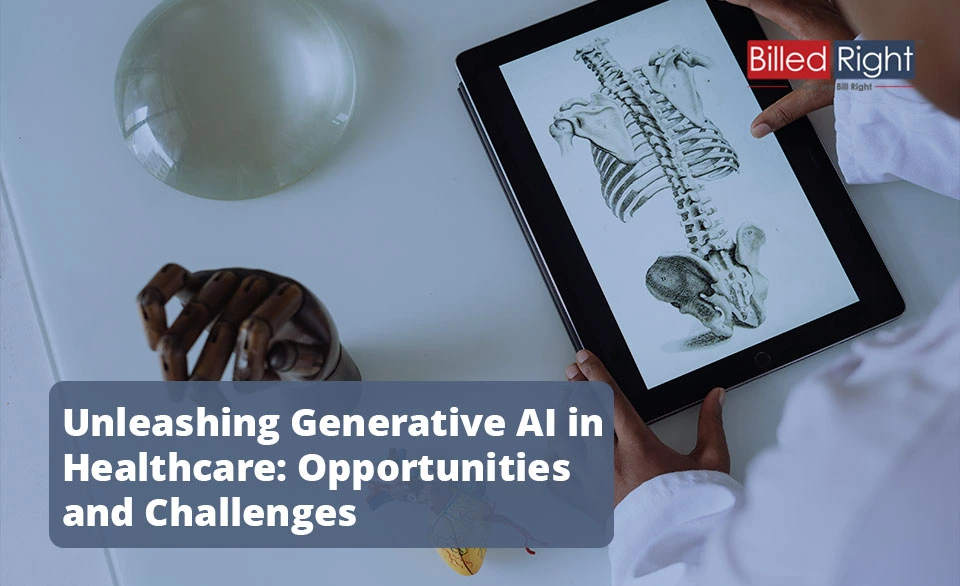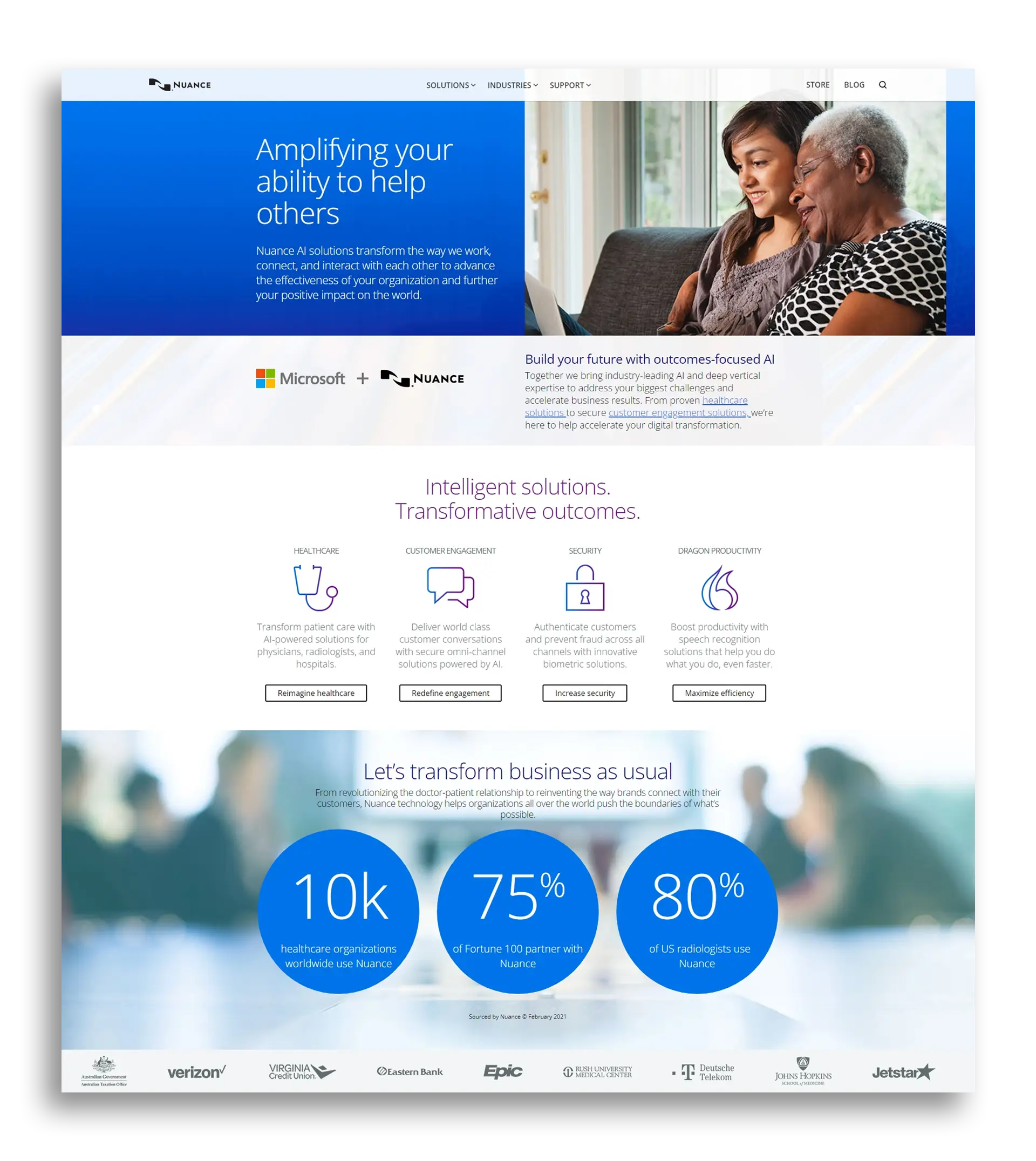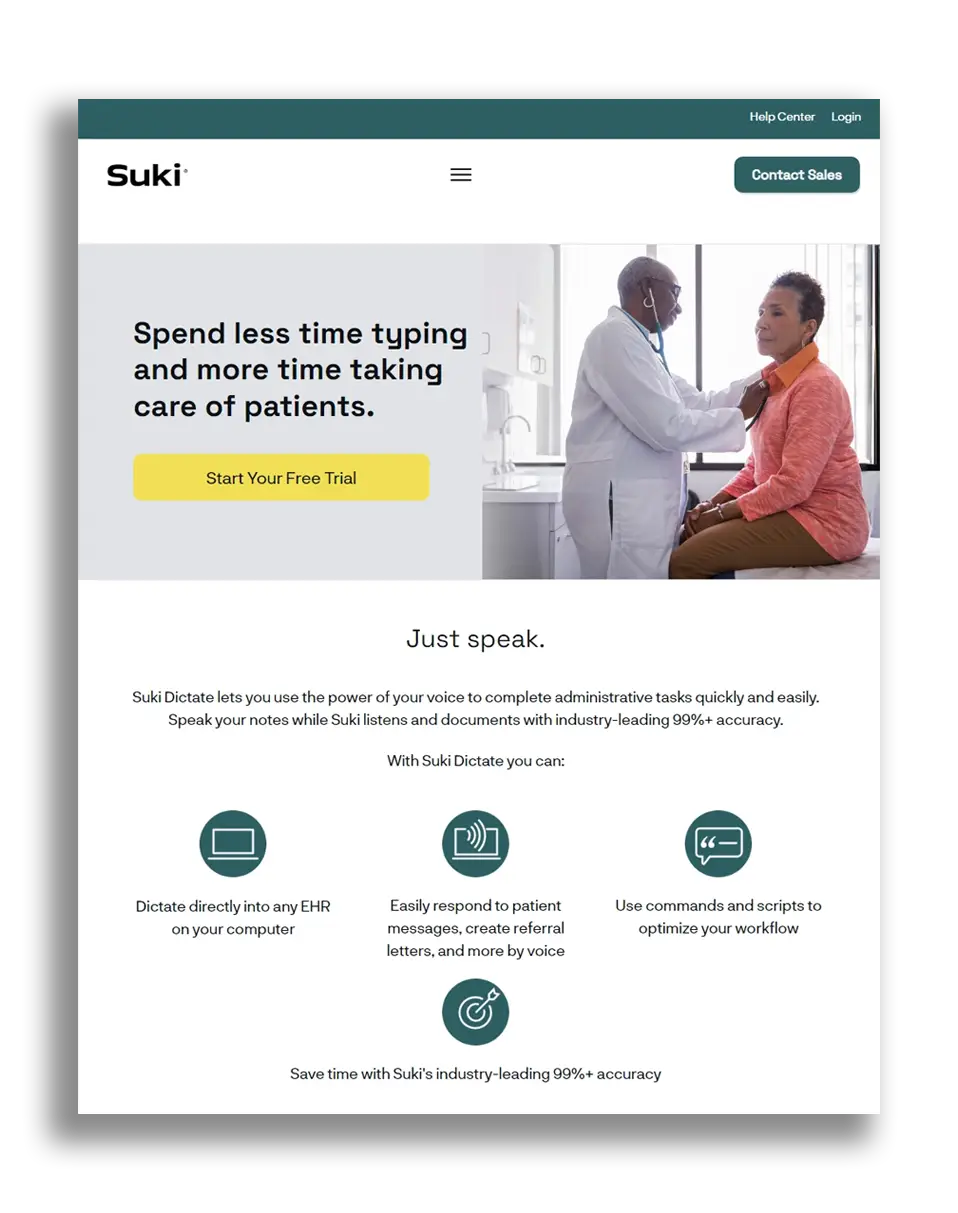Unleashing Generative AI in Healthcare: Opportunities and Challenges

A couple of weeks back, we shared some news about what the folks at Amazon’s AWS were launching in their goal to combine generative artificial intelligence and the healthcare industry. Today, we at Billed Right would like to dive deeper into the segment of generative AI that will inevitably be a part of your professional career in the foreseeable future.
In healthcare, the emergence of generative artificial intelligence (AI) holds profound implications. Generative AI, encompassing the creation of content by machines, has the power to reshape the landscape of medical practices. This could mean big things for doctors and patients alike as AI steps in to help out and improve medical care. But there’s a catch – the ethical concerns around this tech are real and need to be talked about too.
Generative AI’s Potential in Healthcare
Let’s dive into the diverse ways generative AI is making its mark in healthcare.
- One remarkable application simplifies the often intricate realm of benefits notices and prior authorization requests.
- Imagine how generative AI could revolutionize administrative tasks, making healthcare processes more streamlined and efficient.
- Generative AI also has the capacity to interpret complex medical cases and standardize patient interactions.
- Visualize physicians employing this technology to decode intricate cases and communicate effectively with patients using consistent formats.
- Integrating generative AI into clinical software and hospital databases holds immense promise.
- Consider Microsoft’s strategy to seamlessly embed this technology, automating patient correspondence and enhancing overall healthcare management.
- Additionally, envision the impact on medical notetaking and documentation – a potential game-changer for doctors.
- Consider how generative AI could substantially trim the hours spent on notetaking, allowing physicians to dedicate more time to patient care.
- Another frontier is its potential in complex disease diagnosis and data analysis.
- Envision generative AI’s role in unraveling intricate diseases and crunching vast healthcare data sets for more precise diagnostics and improved efficiency.
Partnerships and Initiatives
Turning our attention to collaborations shaping the future, major players like Microsoft and Google are at the forefront of generative AI’s healthcare journey.
- A notable inclusion is Microsoft’s and OpenAI’s collaborative strides, where Microsoft has delved into understanding generative AI’s healthcare implications.
- Microsoft’s active endeavor to integrate generative AI into clinical software and hospital databases is a testament to its commitment.
- The real-time integration into electronic health record (EHR) workflows showcases its practical application, crafting responses to patient queries.
- Imagine the dynamic capabilities that could arise from this integration, offering instantaneous and informed patient interactions – a glimpse of what generative AI could soon become in healthcare.
Challenges and Ethical Concerns
However promising generative AI in healthcare may be, it has its share of ethical questions and potential pitfalls.
- Picture this: AI making decisions without us entirely understanding how it’s reached them – that’s where the transparency and accountability worries come in.
- Plus, there’s the tricky “black box problem” – the AI’s logic can be a bit like a puzzle we’re struggling to solve.
- And then there’s the biggie: accuracy troubles and biases in what AI spits out.
- Think about this – if AI learns from data that has its own prejudices, its results could reinforce unfairness.
- Now, here’s something interesting – more than 33 thousand individuals have signed an open letter asking for a timeout on robust AI systems. The idea is to take a pause, develop rules, and create an intelligent game plan so AI doesn’t go off the rails.
Real-World Implementations
Let’s see how generative AI is being used in everyday situations, starting with companies like Nuance and Suki.
- Take Nuance, for example – they’ve gone ahead and woven GPT-4 into their clinical notetaking software. This move is all about making those notes more accurate and zippy.
- Then there’s Suki, striding forward with their AI-powered voice assistant that crafts clinical notes straight from conversations.
- Now, think about the perks – AI-generated notes could be a game-changer for doctors, giving them more time and a smoother workflow.
- Here’s the cool part – doctors still get to review and tweak those notes, so it’s AI helping, not taking over.
The Road Ahead
Now, let’s envision the future and explore what lies ahead for generative AI in healthcare.
- There’s a sense of excitement in the air – folks are optimistic about how AI could transform the healthcare landscape.
- Imagine AI being like a trusty sidekick to doctors, helping with all sorts of time-intensive healthcare tasks.
- But, hold on a sec – even with all this potential, challenges and unknowns aren’t going anywhere.
- As we move forward, it’s all about finding the sweet spot – pushing innovation while staying grounded in ethical choices.
- Striking this balance is vital to ensuring that AI benefits healthcare without overshadowing the human element of healthcare.
Conclusion
To wrap it up, let’s look at the journey we’ve embarked upon, weighing the opportunities and hurdles in generative AI.
- Generative AI’s potential in healthcare is like a multifaceted gem – shining with promises and complexities alike.
- As we tread this path, it’s clear that responsible development and ethics must walk hand in hand.
- Ongoing dialogues surrounding AI governance and safety protocols underline the significance of steering this ship carefully.
- Yet, let’s not forget the gleam of optimism – generative AI could genuinely revolutionize healthcare for the better.
- We look forward to a future where AI amplifies medical capabilities, all the while guided by ethical values and human supervision.









